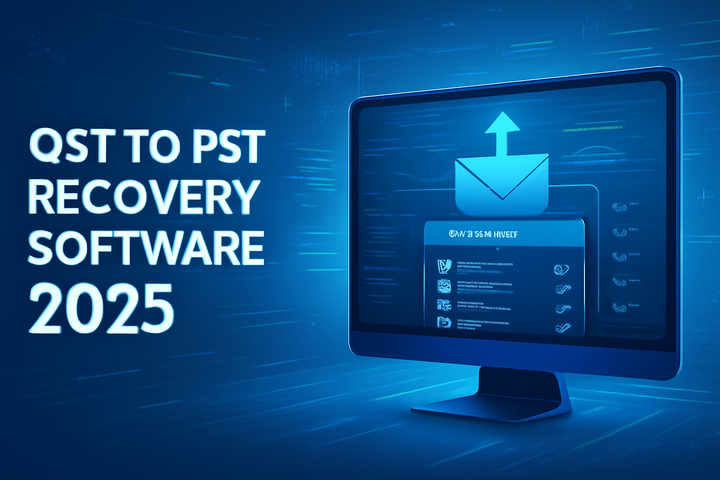OST to PST Recovery Simplified: Fast, Safe & Reliable Way to Restore Outlook Data
Posted by Ved prakash
Filed in Technology 624 views
For professionals and businesses that rely on Microsoft Outlook, the smooth flow of email communication is critical. An inaccessible mailbox can bring productivity to a grinding halt, causing significant stress and potential data loss. Often, the root of this problem lies with the Offline Storage Table, or OST file. When this file becomes corrupt, damaged, or orphaned, users are locked out of their own data. Fortunately, a simplified, fast, and reliable solution exists: converting the problematic OST file to a portable and accessible PST (Personal Storage Table) file. This process not only recovers your data but also restores your peace of mind.
Understanding OST Files and Their Vulnerabilities
An OST file is an offline replica of your mailbox data stored on an Exchange Server, or with an IMAP, Outlook.com, or Office 365 account. Its primary function is to allow you to work with your emails, calendars, and contacts even when you are not connected to the internet. Any changes you make offline are synchronized with the server once you reconnect.
While incredibly useful, this synchronization mechanism is also the OST file's main vulnerability. Unlike a PST file, which is a self-contained data file, an OST file is tied to a specific MAPI profile and the server it was created with. If there are issues with the server, the Outlook profile becomes corrupt, or the user account is deleted, the OST file becomes "orphaned" and inaccessible.
Common reasons for OST file inaccessibility include:
-
Synchronization Errors: Interruptions during the sync process between Outlook and the mail server can lead to corruption.
-
Exchange Server Downtime or Crash: If the server that the OST file is linked to experiences critical issues, the file can become unusable.
-
Malware or Virus Infection: Malicious software can damage the file structure of the OST, rendering it unreadable.
-
Improper Outlook Termination: Force-quitting Outlook or sudden power failures while the OST file is in use can cause data inconsistencies.
-
Oversized Files: As an OST file grows, it becomes more susceptible to corruption, especially in older versions of Outlook.
-
Orphaned OST File: If an employee leaves a company and their Exchange account is deleted, their local OST file becomes orphaned, locking away potentially valuable data.
The Professional Solution: A Dedicated Recovery Tool
While some manual methods exist to try and repair OST files, they are often complex, time-consuming, and carry a high risk of permanent data loss. For a truly simplified and effective solution, a professional OST to PST recovery tool is the recommended approach. These specialized applications are engineered to handle the complexities of data extraction with a focus on speed, safety, and reliability.
Fast Recovery for Minimal Downtime
In a business environment, time is money. Any period of downtime can impact operations and customer relations. A key advantage of a dedicated recovery tool is its speed. Equipped with advanced scanning algorithms, these tools can quickly parse even large and severely corrupted OST files, identifying every recoverable item within minutes. This rapid process allows users and IT administrators to restore access to critical mailbox data promptly, ensuring business continuity. The entire process, from scanning the corrupt file to exporting a healthy PST, is streamlined to minimize user effort and waiting time.
Safe and Secure Data Restoration
The primary concern during any data recovery process is the safety of the information. A reliable vMail OST to PST converter operates on a read-only principle. It works on a copy of the data from the source OST file without altering the original file in any way. This non-destructive approach guarantees that your source file remains untouched, eliminating the risk of further damage.
Furthermore, these tools ensure complete data integrity. During the conversion, they meticulously preserve the original folder hierarchy of the mailbox. All emails, contacts, calendars, tasks, and notes are recovered along with their associated metadata, including the To, Cc, Bcc, Subject, and Sent/Received dates. Attachments are also kept intact and embedded within their respective emails, ensuring a 100% accurate restoration of your Outlook data.
Reliability You Can Count On
A professional recovery tool is built for reliability, capable of tackling situations where other methods fail. It can successfully recover data from password-protected or encrypted OST files without needing the original password. It is designed to handle severe levels of corruption, piecing together data from damaged file structures to restore the maximum possible information. This reliability extends to recovering accidentally deleted items from the OST file, which are often still present within the file but marked as deleted. With support for all versions of Microsoft Outlook and the Windows operating system, these tools provide a versatile and dependable solution for any user facing an OST file crisis. The final output is a clean, accessible PST file that can be directly imported into any Outlook profile.
